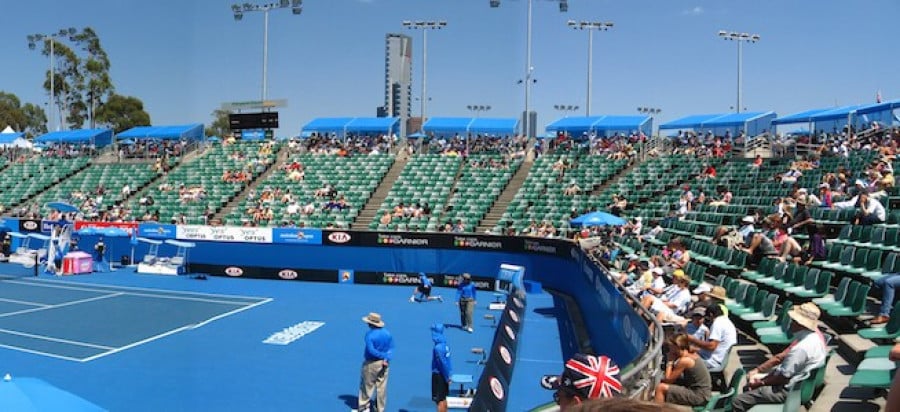“Courtsiding” in sport: cheating, sharp practice or merely irritating?

International sporting tournaments usually bring to the host country a spectacle of sight, sound colour and the experience of close up encounters with other cultures and languages. At the opening Cricket World Cup (CWC) 2015 match at Hagley Oval however, the local cricket‑watching public were also introduced to perhaps the newest word in the gambling lexicon: ‘courtsiding.’1
Originating in the world of tennis, courtsiding (or ‘pitchsiding’) is the practice of relaying real time information to remote locations in order to take advantage of technological, broadcasting delays that may facilitate the manipulation of bets on what will happen (or already has) by gamblers and/or sports books.
There were a number of people ejected2 from the opening game of the CWC for doing exactly that. Although courtsiding is not illegal in New Zealand (where this author is based) it is a breach of the CWC Ticket Terms and Conditions – that is, the contractual terms that a ticket purchaser enters into when buying the ticket. Those conditions prohibit being engaged in “any form of betting or gambling whatsoever within the Venue”3 and the use of “any electronic device to engage in any online betting activities …”.4
It is not hard to see why the International Cricket Council (ICC) is sensitive about the issue.5 Having initially struggled to identify the nature and scope of the gambling and match and spot fixing in their sport, subsequently the ICC have been very proactive and successful in identifying corruption within cricket – prosecuting it and regulating to stop its recurrence.6 Accordingly, the cricket authorities are presumably keen to avoid any unsavoury association with any form of gambling and have moved to ban it from their venues. Basketball New Zealand have taken a similar stance, looking to halt the activity and asking teams to be vigilant.7 That appeals as an entirely appropriate response but beyond that, devising other methods to proscribe courtsiding behaviour is problematic.8
There is clear commonwealth jurisprudence to the effect that there is no ownership of a spectacle9 and none in the facts of the game (e.g. a batsman’s score). Moreover, the mere relaying of real time information to another person outside the ground (even for the purposes of effecting a gambling transaction by another) arguably does not fall under the ambit of ticket terms and conditions, strictly construed.
To continue reading or watching login or register here
Already a member? Sign in
Get access to all of the expert analysis and commentary at LawInSport including articles, webinars, conference videos and podcast transcripts. Find out more here.
- Tags: Australia | Australian Open | Contract Law | Courtsiding | Cricket | Cricket World Cup 2015 | Cricket World Cup 2015 Ticket Terms & Conditions | Crimes Amendment (Cheating at Gambling) Act 2012 (NSW) | Crimes Amendment (Integrity in Sports) Act 2013 (Vic) | Criminal Code Amendment (Cheating at Gambling) Act 2013 | Criminal Law Amendment Bill 2014 (Qld) | Criminal Law Consolidating (Cheating at Gambling) Amendment Act 2013 (SA) | Crminal Law | Gambling | Gambling Act 2005 | Gambling Commission | Governance | International Cricket Council (ICC) | New Zealand | Parliamentary Counsel House (NZ) | Regulation | Tennis
Related Articles
- How the ICC are tackling illegal gambling for Cricket World Cup 2015
- Integrity in Sport Update: New Zealand pass Crime Match Fixing Amendment Bill
- Legal Update: The Governance of Sport Bill
- Tackling match-fixing: a look at the UK’s new Anti-Corruption Plan
Written by

Craig Dickson
Craig Dickson is a senior lecturer in the Law School at AUT University in Auckland where he teaches Sports Law as part of the regular undergraduate LLB electives and he has occasionally appeared in front of sporting disciplinary tribunals. After obtaining an LL.M. at the Centre for Innovation Law and Policy, University of Toronto, he spent some years in private practice before taking up his current position. Craig’s other teaching and research interests include insurance law and intellectual property law and he was recently appointed as inaugural treasurer of the newly formed Asia-Pacific Copyright Association.